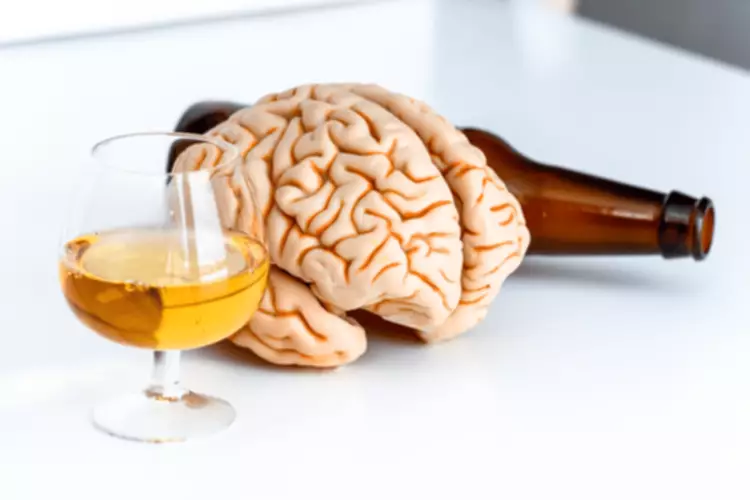If you need urgent help with your mental health, you don’t have to struggle alone. Studies of twins have shown that the same things that lead to heavy drinking in families also make depression https://ecosoberhouse.com/ more likely. It helps people understand events and thought processes that lead to depression and substance misuse. Individuals with alcohol use disorder may drink too much alcohol, too often.
Change Password
- Almost 30 percent of Americans will experience alcohol use disorder at some point in their lifetimes.
- The other explanation, arguably more parsimonious, is that low-level drinking reflects a healthy social life, which protects against depression.
- Some people may drink to try to relieve the symptoms of mental ill-health.
- The “burst” of energy from alcohol can be a welcome relief against some symptoms.
- Most people will feel better in a couple weeks, and the depression will get better.
Drinking water may not have a direct impact on feelings of depression, but rehydrating can absolutely help you start feeling better physically. As hangover symptoms begin to subside, the emotional effects may follow. Alcohol can affect the areas of your brain that help regulate emotions. You might start drinking in order to forget what’s on your mind, but once the initial boost begins to wear off, you might end up wallowing in those feelings instead. Bad sleep can easily affect your mood the next day, since exhaustion and lingering physical symptoms can make it tough to concentrate. While alcohol use can directly trigger feelings of depression, it can also contribute to symptoms in more indirect ways.
Password Changed Successfully
In fact, evidence suggests alcohol can actually have the same short-term effect on the brain as antidepressants. “In the span of a one-hour run, I’m able to work through any intrusive thoughts or negative feelings,” he says. D’Alessandro first began feeling a deep, inexplicable sadness during adolescence.
What causes depression and alcohol use disorder?
Melatonin Depression: Can It Make Depression Better or Worse? – Healthline
Melatonin Depression: Can It Make Depression Better or Worse?.
Posted: Thu, 07 Mar 2019 01:12:49 GMT [source]
“Cells are living beings, and if you want to fix the issue of depression at the level of the cells, they cannot be inebriated,” says Taylor. “Alcohol makes us feel drunk and confused because alcohol makes the cells drunk and nonfunctional.” Depression can also be directly caused by alcohol in the case of a substance-induced can alcohol make depression worse disorder. Researchers agree that alcohol and depression have a bidirectional relationship, meaning that depression can cause overuse of alcohol, but overuse of alcohol can also cause depression. Alcohol can make you more likely to be depressed, and being depressed can make you more likely to drink alcohol.
Alcohol Use Among Depressed Patients: The Need for Assessment and Intervention
Depressive symptoms can result from life stressors, mental health conditions, medical conditions, and other factors. However, alleviating depression does not resolve the alcohol use disorder. In some cases, you may receive a dual diagnosis of a major depressive disorder (MDD) and an alcohol use disorder (AUD). This co-occurring disorder isn’t uncommon, but it can be difficult to treat. There is a strong link between alcohol use and depression, a mental health condition that includes feelings of hopelessness, emptiness, fatigue, loss of interest, and more.
- When women consume even moderate levels of alcohol, their risk for various cancers goes up, including digestive, breast and pancreatic cancer, among other health problems – and even death.
- By the time she reached age 25, she could barely get out of bed in the morning due to her depression.
- ” self-assessment below if you think you or someone you love might be struggling with an alcohol use disorder (AUD).
The distinction is important, because symptoms might be only temporary, whereas true psychiatric disorders are likely to require long-term and more intensive treatments, including psychotherapy and medication. Thus, few of the investigations offered assurance that an alcoholic or alcoholic’s relative actually had a long-term psychiatric syndrome rather than a temporary alcohol-induced condition. Fortunately, several important ongoing studies will help answer some remaining questions regarding the treatment of coexisting depressive or anxiety disorders in the context of alcoholism. The COGA investigation will gather more data regarding potential alcoholic subtypes and will continue to explore possible genetic linkages between alcohol dependence and major depressive and major anxiety disorders. Certain ongoing treatment studies also are further evaluating the potential usefulness of buspirone, some specific anti-depressants, and other medications that affect brain chemicals as potential components for treating alcoholism. Each of these studies is taking steps to evaluate the importance of these psychiatric medications while considering whether subjects’ depressive or anxiety syndromes are likely to be alcohol induced or may indicate longer term independent psychiatric disorders.
Researchers

Tips to change your relationship with alcohol

